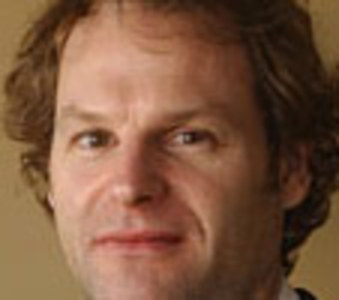A young Louise Marleau once dated an eligible Pierre Trudeau. But when the iconic Quebec actress - a fixture on the arm of the playboy prime minister in the late 1960s - popped by the Sunday night TV confessional that is Tout le Monde en Parle, she didn't blink when asked if she knew how she'd vote on Oct. 14.
"Oui!" cried Ms. Marleau before looking across the set to fellow guest Gilles Duceppe, the Bloc Québécois Leader, and purring: "Bonjour."
If you think the arts community in English Canada has a hate-on for the Tories, you should ask the average Quebec actor what he or she thinks of them. You might just get hit over the head with a Gémeau, the French version of the Gemini award. The Sept. 13 broadcast of the Gémeaux awards - from which Heritage Minister Josée Verner was conspicuously absent - gave artists access to an audience most politicians can only dream of. More than 1.4 million Quebeckers tuned in and the acceptance speeches got political. The same number watched Tout le Monde en Parle on Sunday.
Nowhere in Canada have the Conservatives' recent $45-million in cuts to the arts taken up as much space in the media as in Quebec, where the issue has typically morphed into one of cultural survival.
In Quebec, culture and nationalism go together like Stephen Harper and a V-neck. Less than 1 per cent of Quebec artists identify themselves as "Canadian" and more than three-quarters of all artists in the province voted Yes in the 1995 sovereignty referendum, according to a study by York University professor Alexandre Brassard Desjardins.
No wonder Mr. Harper is the only major party leader to refuse an invitation from Tout le Monde en Parle, the must-see weekly talk show on the CBC's French-language counterpart, Radio-Canada. How could he possibly win with a crowd that actually believes the rumours (swirling these days in Quebec) that the Conservative Leader aims to shut down the public broadcaster?
Tory strategists in Quebec went into the election campaign confident that the arts cuts would have no resonance, especially with their target voters outside Montreal, who they figure are more likely to spend their nights watching the lower-brow fare on TVA.
Then again, they probably didn't count on Jean Charest playing the cultural superhero in this campaign. Not only has he called for the reversal of the recent arts cuts, the Liberal Premier has chosen the campaign to renew an old demand for "cultural sovereignty," a move that would involve Ottawa's withdrawal from regulating the telecommunications sector and funding the arts in Quebec, while transferring the money it spends in those areas to the province.
Mr. Charest blew a gasket last week after Mr. Harper pointed out that by transferring billions more in equalization payments to Quebec to resolve the so-called fiscal imbalance, the province has more than enough money to fund government programs, including cultural ones. Mr. Harper added that Mr. Charest had so much cash thanks to Ottawa that he has returned $700-million annually to Quebeckers in the form of income-tax cuts.
"I don't have to answer to the federal government about the management of funds in Quebec," Mr. Charest cried, before saying that the fiscal imbalance wasn't settled after all.
Mr. Charest aims to position himself as the only Quebec party leader not beholden to a federal one and lay the groundwork for the next provincial campaign. With Mario Dumont and his Action Démocratique du Québec openly working to elect Tories (in the hopes the latter will return the favour) and Pauline Marois of the Parti Québécois joined at the hip with the Bloc, Mr. Charest can depict his adversaries as putting partisan interests ahead of Quebec's.
Behold the theme of the next Quebec vote, which increasingly looks as though it could come soon after the federal one. The provincial Liberals are much like the federal Tories: in a minority, leading in the polls and way better organized and funded than their rivals.
Mr. Charest's outbursts are not aimed at preventing a Tory majority. He would prefer that Quebec send Conservative MPs to Ottawa rather than Bloc or Liberal ones. But by attacking the Tory arts cuts, he just wants to establish in Quebeckers' minds that he's the one best positioned to exact ransom from the feds.
Look for him soon on Tout le Monde en Parle.
























Laissez un commentaire Votre adresse courriel ne sera pas publiée.
Veuillez vous connecter afin de laisser un commentaire.
Aucun commentaire trouvé